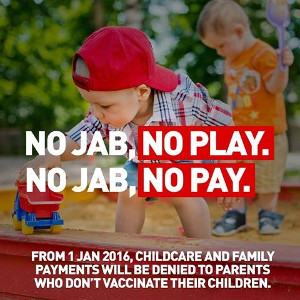
Canberra introduces ‘No Jab, No Pay’
From the start of 2016 the Federal Government introduced a new policy - controversial in some places, notably the NSW North Coast - called “No Jab No Pay”.
This policy means that parents who have children who are not age appropriately vaccinated, who do not have a medical reason for not having vaccines, or are not on a catch-up schedule will now have their eligibility for some of their Commonwealth funded benefits cut.
The payments that may be affected include -
- Child care benefit
- Child care rebate
- Family Tax Benefit Part A supplement
The so-called ‘conscientious objection’ to vaccination is no longer deemed an acceptable exemption from vaccination.
- Details
- Written by: Marianne Trent, Immunisation Coordinator, North Coast Public Health Unit
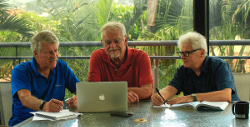
Lifestyle Medicine turns a healthy eight
In 2008, after a lengthy involvement with managing obesity issues at the primary care level, Adjunct Professor of Lifestyle Medicine (Southern Cross University) Garry Egger and I decided it was time to focus more on the broader issue of lifestyle-related chronic disease.
This was partly in response to the 2006 report by the Australian Institute of Health and Welfare saying that up to 70 per cent of all GP visits were thought to have a predominantly lifestyle cause.
We coined the term Lifestyle Medicine (LM) and set up the Australian Lifestyle Medicine Association (ALMA). The inaugural meeting in May 2008 was held at the University Centre for Rural Health in Lismore. The 50 attendees comprised GPs and allied health professionals from many disciplines.
- Details
- Written by: Andrew Binns
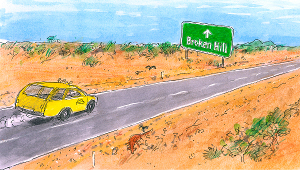
The Euthanasia Debate 2016
When told he doesn't have long to live, Rex, the loner taxi-driver in the recent film Last Cab to Darwin, embarks on an epic drive through the outback from Broken Hill to die on his own terms in the jurisdiction where euthanasia is soon to become legal.
However, his journey reveals to him that before you can end your life, you have to live it, and to live it, you've got to share it.
After seeing this thoughtful film I attended a Q&A with legendary Australian actor Michael Caton who played the role of Rex. One of the questions asked was “is this a movie about euthanasia?” His reply was “no, it’s about a journey and transcendence”.
A strong theme in the film is the way a person can change at any stage of their life’s journey even when they come to accept that their life is terminal (and isn’t life a terminal condition?). Rex’s self-transcendence from not wanting to be a burden on others as he left on his journey to ultimately abandoning that idea and returning to a new life of re-uniting with his lover, friends and community.
- Details
- Written by: Andrew Binns
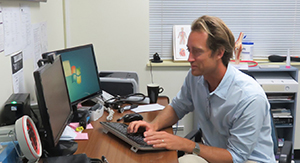
Rural LICs - what they are, and how they work
Dr Jane Barker explains the value of local GP placements for advanced-level medical students
When I first heard of the long-term student placements in general practice I wondered if and how they fitted into medical training. Longitudinal integrated clerkships, LICs for short, have now been proven to be effective learning environments for later-stage medical training.
The University Centre for Rural Health/North Coast (UCRH) has hosted students from Wollongong for the past 7 1/2 years, more than 150 students in all. Each of them has been allocated to a general practice in our area for two days a week for 38 weeks. In this four-year postgraduate program, this is effectively an eighth of their medical training.
For me the exciting part is that LICs claim what we have all known: that general practice can be a fertile learning environment, not only to teach Community Medicine but Medicine in general, that large teaching hospitals are not essential for all medical training and that there are aspects of medicine which are best learned in a general practice environment.
- Details
- Written by: Jane Barker
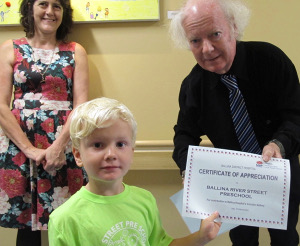
Keeping rehab patients hale and arty
Simply put, the artworks that now line the corridor of the rehabilitation and transitional care unit at Ballina District Hospital “give patients a good reason to get out of bed and take walks.”
The words came from well-known local GP, Sue Page, who was representing the Board of the Northern NSW Local Health District at the opening of the latest stage of exhibited works done by all nine pre-schools and kindergartens in the Shire.
Stages 1 and 2 feature works by Ballina’s primary and high schools, public and private, and have a similar focus on environmental features of the area - the sea, bird and wildlife, agriculture, the hills, and the built landscape, including the Big Prawn.
- Details
- Written by: Robin Osborne
Page 142 of 177















